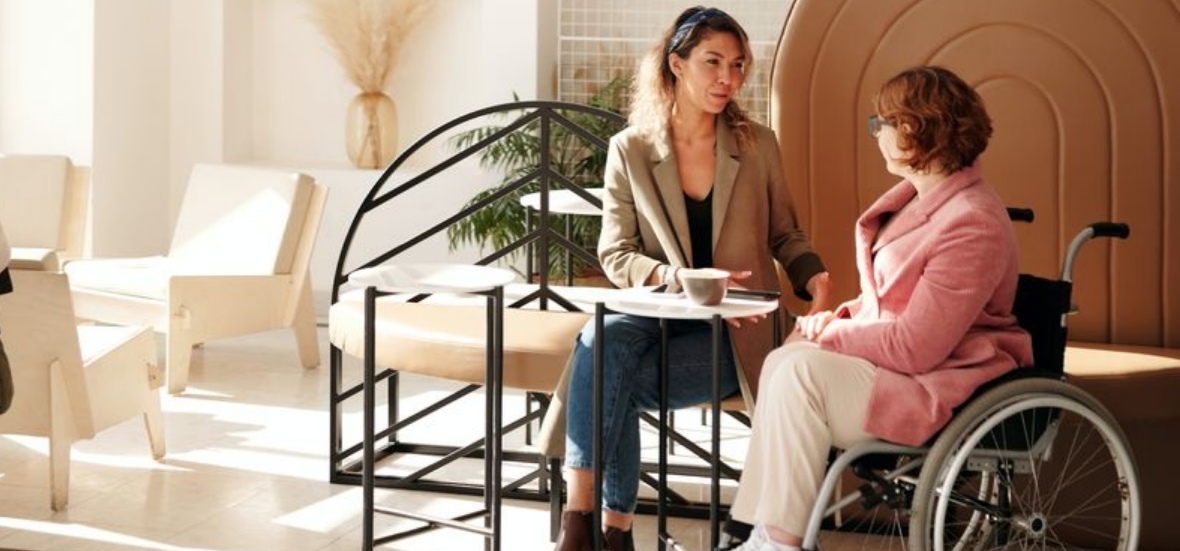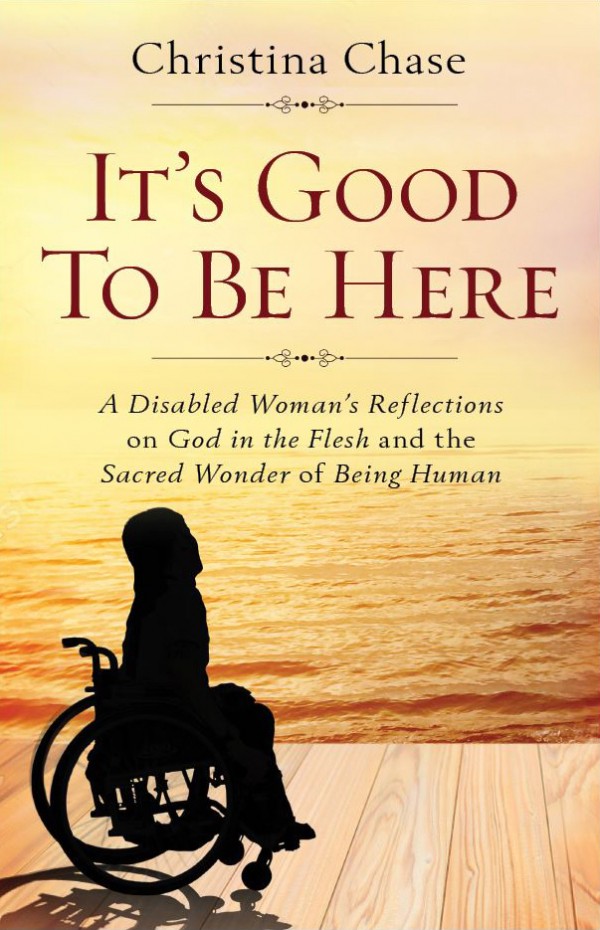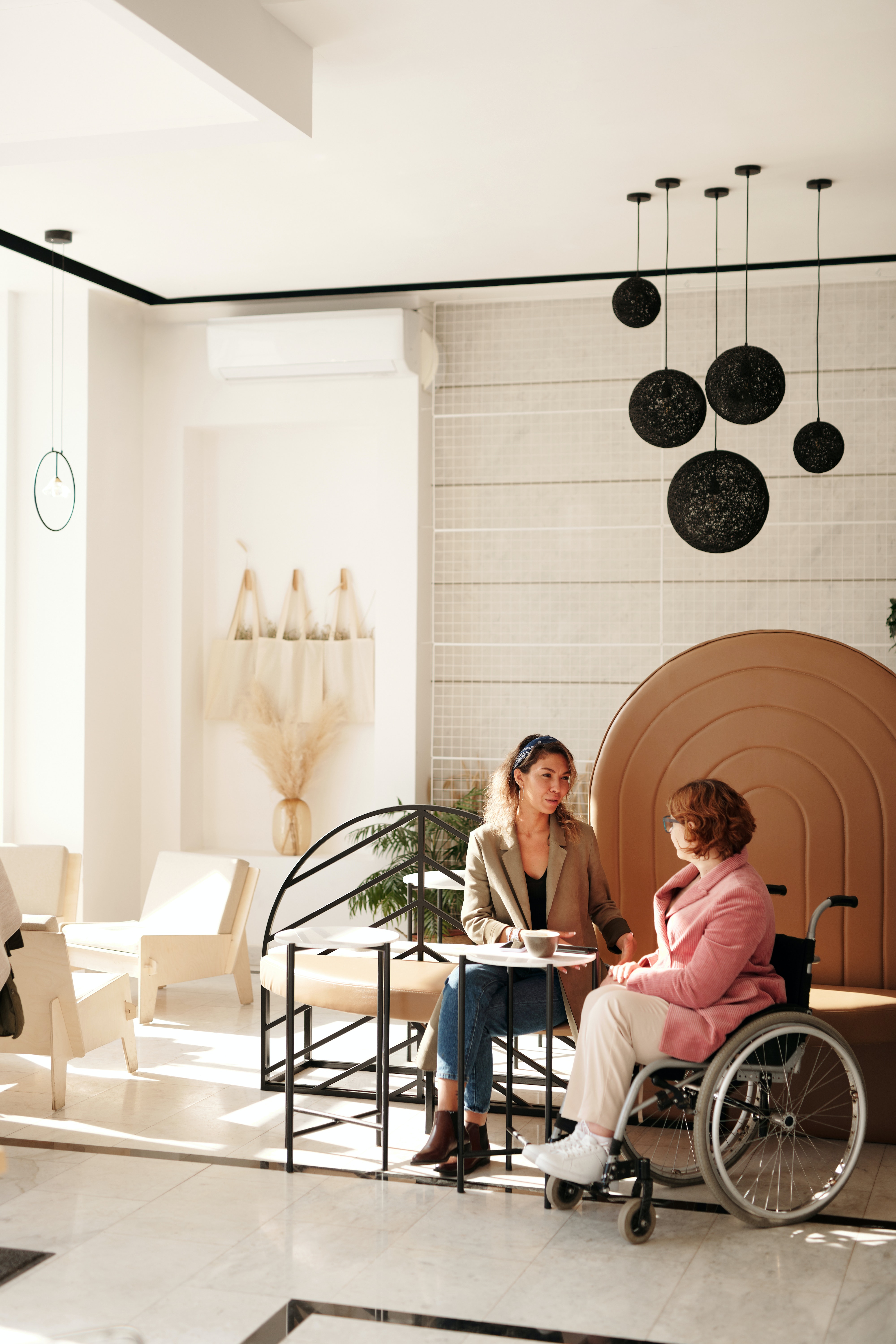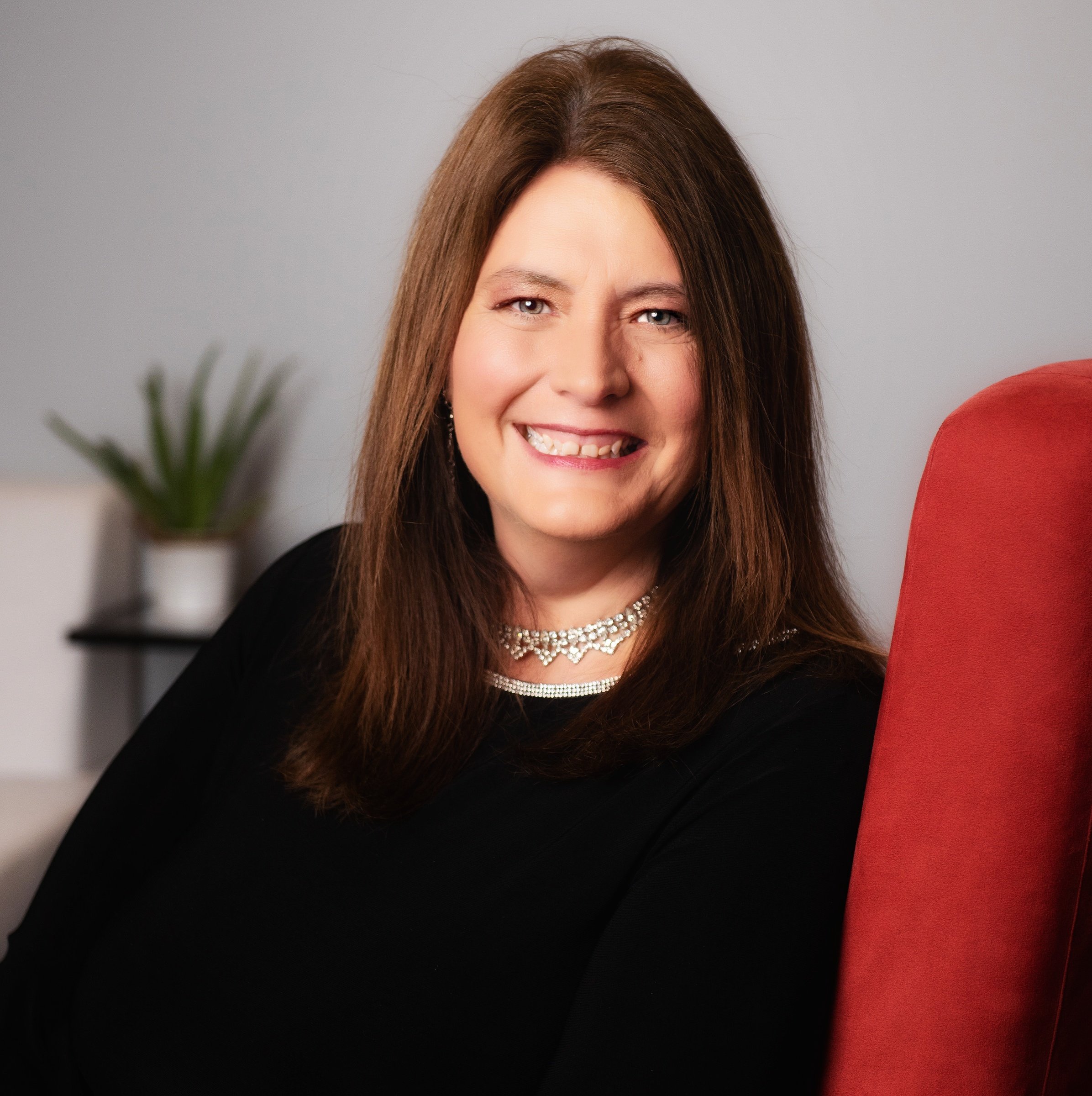
Jennifer Lindberg reveals the biggest secret about living with the body you have, and what a disabled woman taught her about valuing her own body.
The body staring back from you in the mirror is a true-reflection of God’s love for us. Usually, we don’t see it that way, the wrinkles and imperfections caused by life grieves us.
We ask questions we can’t answer. Why was I born curvy, or thin, or with premature gray hair?
You Have the Body You Were Meant to Have
God answers my questions. You have the body you were meant to have, says author Christina Chase.
In an age of body-shaming and body image problems, God directs my gaze to the Cross and Chase. Chase wrote the book It's Good to Be Here, a bold claim for a woman who can’t brush her own teeth. Chase sits in her wheelchair, her head at a jarring angle with arms and legs paralyzed. She can barely move her fingers to drive her power wheelchair. But nothing has limited her voice filled with a message of hope broadcast over national radio stations and programs proclaiming, “it is good to be here.”

She is not ashamed of her disabled body after being born with spinal muscular atrophy. Chase can’t hide her body and she doesn’t want to, embracing all its imperfections. I doubt the majority of us could say the same — and we are not paralyzed in a wheelchair.
“I don’t mind using images of myself to wake people up to the gratitude and to the understanding of our shared humanity,” Chase says in her Instagram post. “Live fully every little moment and remember that your life is beautiful, a truly divine gift. You are made for love.”
Chase battles tough statistics to remedy the images presented to us on a daily basis of what a perfect body should look like. More than 70 percent of women are unhappy with their bodies even though they are at normal weight. More than 50 percent of 13-year old girls are unhappy with their body, the number growing to 80 percent by the time they are 17-years-old.
Chase told me she is alarmed by the way mainstream culture “views the human body, treats suffering, and celebrates beauty.” The struggle is real to define beauty. It’s not the number on the scales, blemishes on our face or bodies that define our worth.
“We have fallen away from the full goodness of living centered in God,” she writes. “And because we no longer live in a paradisiacal state of trusting and loving union with the Divine, the imperfections of the natural world have become overwhelming ordeals,” Chase wrote.
Scars and struggles bear fruit
Our bodies bear marks of our struggles, sacrifices, and scars. I think of child-birth here. Those stretch marks and fat pockets are a reminder of holiness. I gave my body for the life of another. I still lead a productive and healthy life. I still laugh, dream, work, and play. My body does not limit my dreams. While Chase wanted to be a wife and mother, her body limits that dream but not others. She has turned her limitations into blessings of encouragement for all of us.

What looks like a blemish on my skin produced something holy, a new born baby, resting in my arms, nuzzling at my breast—pure, innocent flesh, baby soft, enfolded in my flesh full of scars. It’s not an excuse to forfeit healthy eating and exercise, but it is a way to being normal and not comparing ourselves. What looks like disability in Chase, has brought forth a stirring book about resting in God’s love for us no matter what our body type!
The culture has shifted from health and looking nice to a culture that shames us for any blemish. The reason–beauty and glamour magazines – research states. When you behold bodies set up with perfect lighting, photoshop, and personal trainers it’s hard for an ordinary girl to compete. Girls who frequently read these magazines report they are six times more likely to engage in unhealthy behaviors to control their weight — taking diet pills, using laxatives, and vomiting.
Adult women are not exempt:
-
Despite 73 percent of women falling within the normal weight range, more than 70 percent of women want to be thinner.
-
It doesn’t matter what age you are either because 62 percent of older women aged 65 and older wished to be thinner.
-
Adult women in the United States, 23 percent, reporter frequent body checking and 11 percent avoid their body entirely by not even looking in a mirror.
-
One large study reports no difference in rates of body dissatisfaction between Caucasian and African-American adult women, with 50 percent from each group reporting body dissatisfaction.
In my hometown, everyone knew Mrs. Faith was “heavy set.” She always wore a nice dress and was the first to cook dinner for someone who was ill. She knew her worth and shared it with others. She didn’t let her size stop her. My grandmother went from 90 pounds as a bride to about 160 pounds, being only 4 feet 8 inches tall. She never complained, nor did my grandfather. When she was washing dishes, he still snuck up behind her to give her a hug and kiss on the cheek. At 96 years old, she was back to 90 pounds. It took a few decades, but so what? She loved the body God gave her at all stages in life.
I don’t remember as much body-shaming back then before social media. No one said you were going to scare someone if you wore the wrong outfit or gained a few pounds. We left those conversations for Halloween.
Limiting what we behold
The biggest secret to beating this trend seems to be limiting what we behold, especially on social media. One study states using social media for as little as 30 minutes a day can negatively change the way you view your own body
“Don’t overthink your life and don’t live as if you are being judged by “viewers,” Chase said. “People who have short attention spans and perhaps shallow ideas. Do live fully every moment and remember that your life is beautiful, a truly divine gift. You are made for love.”
Today, I decide to Behold this Divine Love Chase articulates so well. To behold my body that has wounds of glory. I celebrate every stretch mark, and every pain in my back from epidurals because it brought me children to love. Christ suffered in His body to lift us up and to show us that we are wonderfully made. Our body is a Tabernacle of the Holy Spirit. It’s just waiting for us to see it with the right image: God’s.
Copyright 2020 Jennifer Lindberg
Image: Pexels (2020)
About the Author

Jennifer Lindberg
Author of "It's Three O'clock Somewhere," and award-winning journalist Jennifer Lindberg went from photographing Cindy Crawford on the red carpet to picking up toys and crumbs off her carpets at home. Six kids later, homeschooling eclectic, and divine mercy devotee, her carpet duties have lessened allowing her to write about hope, mercy, pilgrimage travel, and true self-care at Thinking From Hope or Instagram at @ThinkingFromHope.


.png?width=1806&height=731&name=CatholicMom_hcfm_logo1_pos_871c_2728c%20(002).png)
Comments